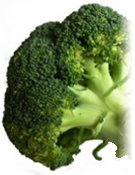Diet Guide to Fighting Constipation
How to Relieve Constipation With Food Laxatives
Food laxatives for relieving constipation and stimulating natural bowel movement are a dime a dozen. From figs and beets to papaya and prunes, the scope of foods with laxative properties is impressive. And the best thing is, most of the natural laxatives are common foods that are available at practically every supermarket.
Constipation refers to irregular bowel movements and to stools that are hard to pass. It is one of the most common digestive complaints, and virtually everyone has experienced the painful symptoms associated with constipation at one point or another. In most cases, constipation is only temporary and not dangerous, and it can be treated naturally through dietary modification or with the help of specific foods that have laxative properties (i.e. bowel movement stimulating properties). If you are looking for tips on how to use food laxatives as a natural treatment for constipation, you are in the right place. In this online Guide to Fighting Constipation With Food you'll find a wealth of nutrition-related information, including practical tips and tricks, that can help you avoid temporary constipation. To get started on your way to constipation-free life, check the diet, food and recipe sections below.
The resources below are primarily aimed at people who are looking for ways to treat temporary constipation with the help of laxative foods. These resources may also be helpful for people with chronic constipation if the root of the problem lies in dietary habits. However, if you suffer from chronic constipation that does not seem to respond to changes in diet, go see a doctor to make sure that a more serious underlying medical condition is not the cause of your constipation problem. You should also see a doctor if you experience unexplainable chronic constipation for the first time in your life, or if your constipation problem is accompanied with stomach pain, bloody stools, or unexpected weight loss.
While chronic constipation may simply be caused by stress, insufficient physical exercise, lack of fluids or fiber-rich foods in the diet, or certain medications, it may also be caused by medical conditions such as irritable bowel syndrome (IBS), diverticulitis, ulcerative colitis, hemorrhoids, varicose veins, appendicitis, hiatus hernias, or colorectal cancer.

Diet Tips for Relieving Constipation and Stimulating Bowel Movement
The food you eat on a daily basis has a major impact on your digestive health. Certain dietary habits are known to cause hard stools and irregular bowel movement, while others can help prevent and relieve constipation. In this section, you will learn the basics of the Constipation Relief Diet. View Diet Tips
View Diet Tips
List of Foods That Help Prevent Constipation
In this section, you will learn which foods can be used as effective natural laxatives. And the best thing is, many of these food laxatives – including beets, prunes, pears and figs – are common foods that are available at your local supermarket! View Food List
View Food List
Recipes for Fighting Constipation
How about a hearty helping of nettle soup that is packed full of magnesium, one of nature's best natural laxatives? Or perhaps a bowl of salmon salad that is easily digestible and that is topped with vinegar-based dressing which helps improve your body's ability to have regular bowel movements? To view the recipes for these and other anti-constipation dishes, click on the link below. View Recipes
View Recipes








